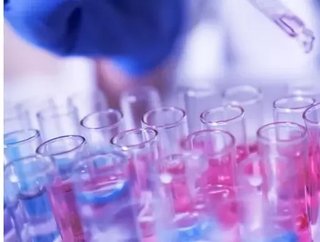Cambridge University to build AI chemical research lab

The University of Cambridge is to build a multimillion-pound research facility which will see AI accelerate chemical engineering progress.
While work has yet to begin on the build, projects have already started at the Innovation Centre in Digital Molecular Technologies (iDMT), part of the university’s department of chemistry.
It is hoped the facility will speed up access to pharmaceuticals, agrochemicals, functional molecules and molecular materias through machine learning and robotics-based synthesis.
The project was part funded by the European Regional Development Fund, and in partnership with pharmaceutical companies AstroZeneca and Shionogi.
'Major bottleneck'
Professor Alexei Lapkin from the University of Cambridge department of chemical engineering and biotechnology is iDMT’s director. He said, “Access to new functional molecules and materials continues to be a major bottleneck in many chemistry-using industries, such as medicine, food, electronics and energy.
“It is very difficult to predict how chemical processes would behave at an industrial scale. For this reason, development and optimisation of chemical processes usually takes quite a long time. AI tools can help solve complex problems of chemical process design speeding up the transition from a working chemical reaction in the lab, to a scaled-up industrial process.
“Combining cross-disciplinary expertise from several departments at the University, with state-of-the-art facilities and support from two of the leading companies in this area has the potential to enable the development of many new solutions for the nascent industry of digital molecular technology.
“Facilitating knowledge exchange to SMEs so that they can develop the right product offer that would serve the needs of the large end-user companies in the pharma, agritech and wider chemical manufacturing sectors will enable an industry-wide shift in how synthesis, process design and manufacture are carried out.”
'AI will free up scientists' time'
iDMT co-director and director of the EPSRC SynTech centre for doctoral training Matthew Guant added, “Despite tremendous advances in chemistry, we still cannot always make all of the molecules we need on demand, especially when set against increasingly competitive business-driven timelines, and this means that we often miss out on many potential opportunities to, for example, develop new medicines.
“The transformational change that we believe is required in the way chemical synthesis is approached is based on a radical increase in the throughput of chemical discovery and process development. This can be achieved through the automation of largely routine procedures, and the adoption of artificial intelligence to guide synthetic chemists towards successful solutions in a more efficient manner. This frees up time of a scientist to develop new ideas.”
Dr Ryuichi Kiyama, senior executive officer, Pharmaceutical Research Division, Shionogi, said: “We are proud to be part of this new innovative chemistry research consortium with the leading research institutes in the United Kingdom. As a pharmaceutical company with strengths in chemistry-driven small molecule drug discovery, we are committed to contribute to the discovery chemistry innovation in collaboration with researchers from the partner institutes and companies.”
The iDMT will support collaborative research projects with small and medium enterprises (SMEs) from across the UK, aiming to develop a technology base to support the emerging digital economy in the third largest manufacturing sector in the UK.
Three ways the iDMT will support research using AI
• Acceleration of synthesis through AI and automation
• Equipment for robotic experiments
• Algorithms and tools for digital process development






